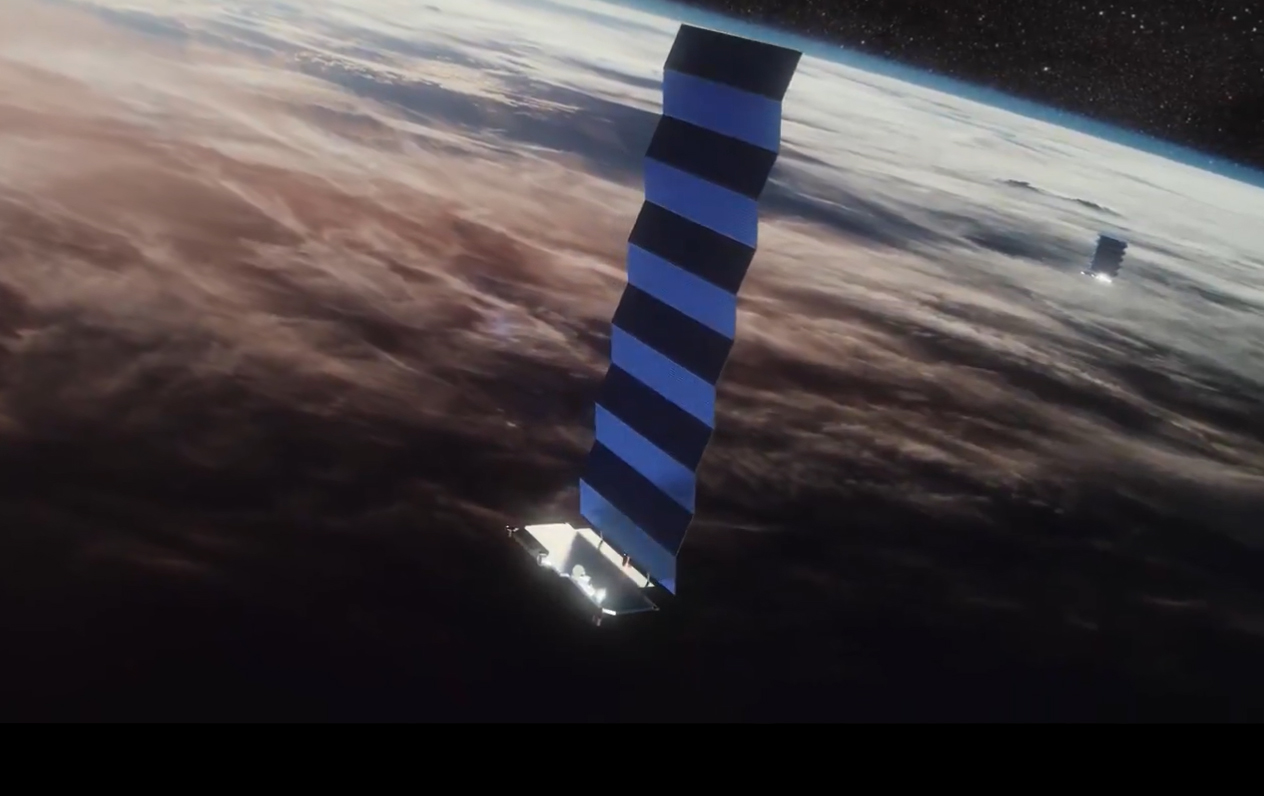Elon Musk's SpaceX sends more Starlink terminals, power supplies to Ukraine
SpaceX has been building out Ukrainian capability for weeks amid an invasion by Russia.

Elon Musk's SpaceX has sent a second shipment of Starlink terminals to Ukraine, generating grateful thank-yous from senior Ukrainian government officials, including President Volodymyr Zelenskyy.
SpaceX delivered its first batch of Starlink terminals to Ukraine after Russia's invasion of that country on Feb. 24 caused widespread communications outages across the country. That lack of connectivity let to a government official asking Musk personally for assistance on Twitter following weeks of private negotiations.
Ukraine is under siege due to an internationally condemned invasion by Russia that began Feb. 24, and space entities worldwide have responded with sanctions against Russia and support for Ukraine.
Now with more supplies in hand, that same Ukrainian official thanked Elon Musk personally (Musk had pledged publicly to help immediately after the first request) for the Space X CEO's ongoing support.
Related: Russia's Ukraine invasion and space impacts: Live updates
Received the second shipment of Starlink stations! @elonmusk keeps his word! Thank you for supporting Ukraine and peace in the entire world! @OMarkarova thanks! pic.twitter.com/hNZwsXkOCTMarch 9, 2022
Talked to @elonmusk. I’m grateful to him for supporting Ukraine with words and deeds. Next week we will receive another batch of Starlink systems for destroyed cities. Discussed possible space projects 🚀. But I’ll talk about this after the war.March 5, 2022
"Received the second shipment of Starlink stations! keeps his word! Thank you for supporting Ukraine and peace in the entire world," wrote Mykhailo Fedorov, Ukraine's vice prime minister and the country's minister of digital transformation, in a Twitter post Monday (March 9).
Federov also tagged Musk, and Musk responded two hours later. "You’re welcome. We have also sent power adapters for car cigarette lighters, solar/battery packs and generators for places where electricity is not available," the SpaceX CEO wrote.
Breaking space news, the latest updates on rocket launches, skywatching events and more!
President Zelensky offered his own gratitude on Twitter; the president has been very active in media in recent weeks in asking other countries to offer as much support as possible to maintain Ukraine's existence. Ukraine also wants to join the North Atlantic Treaty Organization, of which the United States is a part.
"Talked to @elonmusk," Zelenskyy wrote on March 5. "I'm grateful to him for supporting Ukraine with words and deeds. Next week we will receive another batch of Starlink systems for destroyed cities."
Zelenskyy hinted that Ukraine is interested in asking for more SpaceX services for "possible space projects" in a while, but "I'll talk about this after the war," the president added.
Satellite pictures continue to show the devastating impact of the invasion, which has also prompted the tension or disintegration of space partnerships in the largest sea change to the industry since the breakup of the Soviet Union in the early 1990s. (The International Space Station remains operational as usual, according to NASA; that has Russia and the U.S. as chief partners of a multinational coalition.)
On Friday (March 11), the Guardian reported that the situation in the city of Mariupol is "critical" as it is difficult to get aid to the people there, who are lacking electricity and supplies due to the invasion. Officials estimate that more than 1,200 people have been killed in that city alone; that figure does not include those who died defending the capital of Kyiv, or other key Ukrainian cities the Russians are attacking.
Follow Elizabeth Howell on Twitter @howellspace. Follow us on Twitter @Spacedotcom or on Facebook.

Elizabeth Howell (she/her), Ph.D., was a staff writer in the spaceflight channel between 2022 and 2024 specializing in Canadian space news. She was contributing writer for Space.com for 10 years from 2012 to 2024. Elizabeth's reporting includes multiple exclusives with the White House, leading world coverage about a lost-and-found space tomato on the International Space Station, witnessing five human spaceflight launches on two continents, flying parabolic, working inside a spacesuit, and participating in a simulated Mars mission. Her latest book, "Why Am I Taller?" (ECW Press, 2022) is co-written with astronaut Dave Williams.
